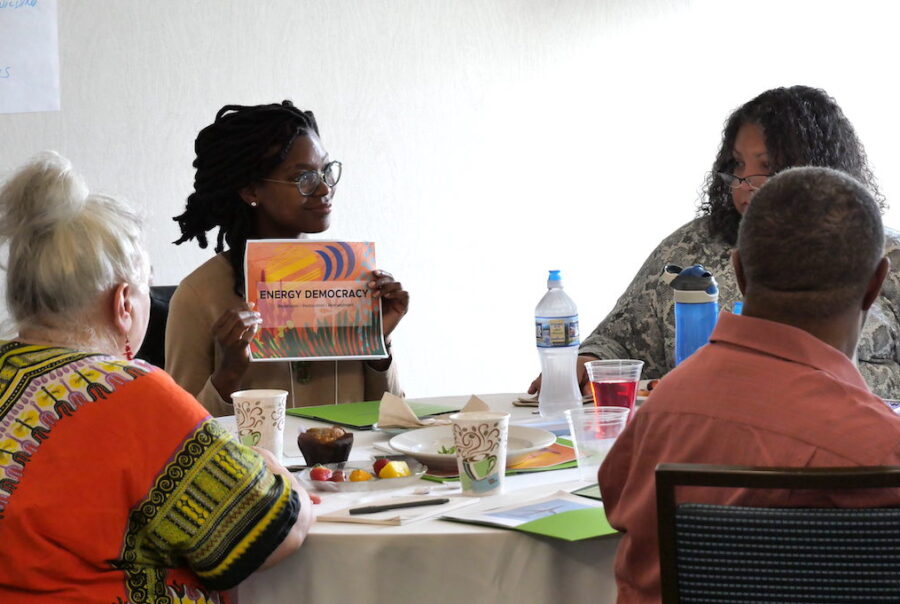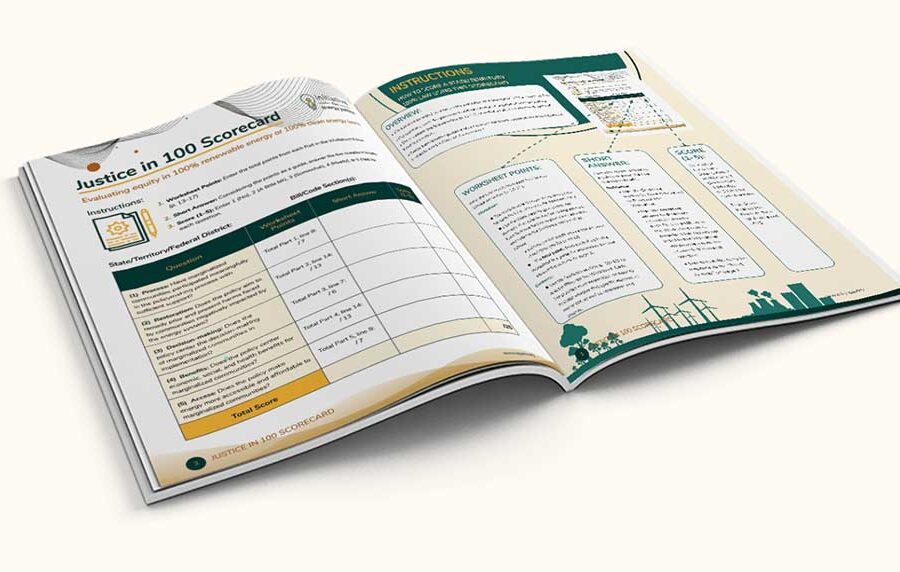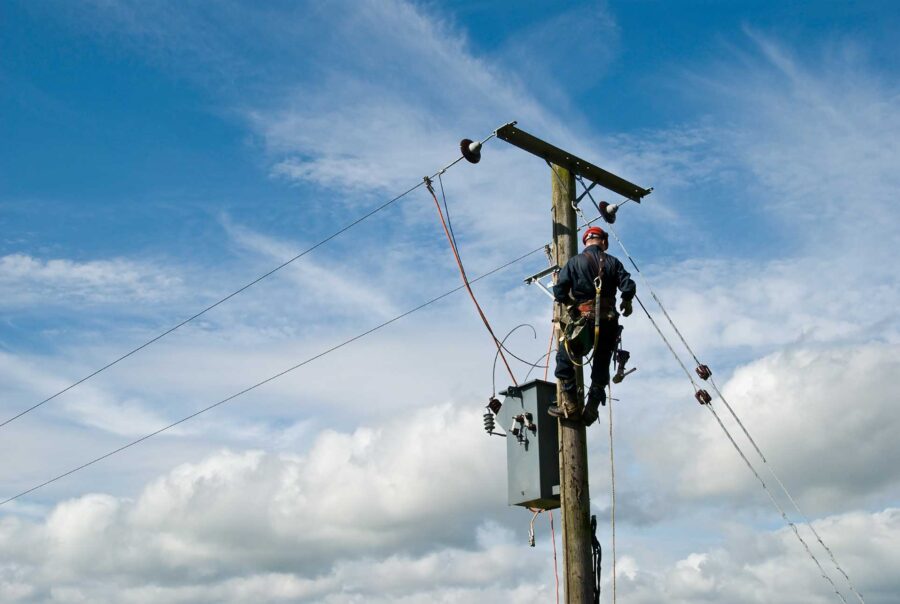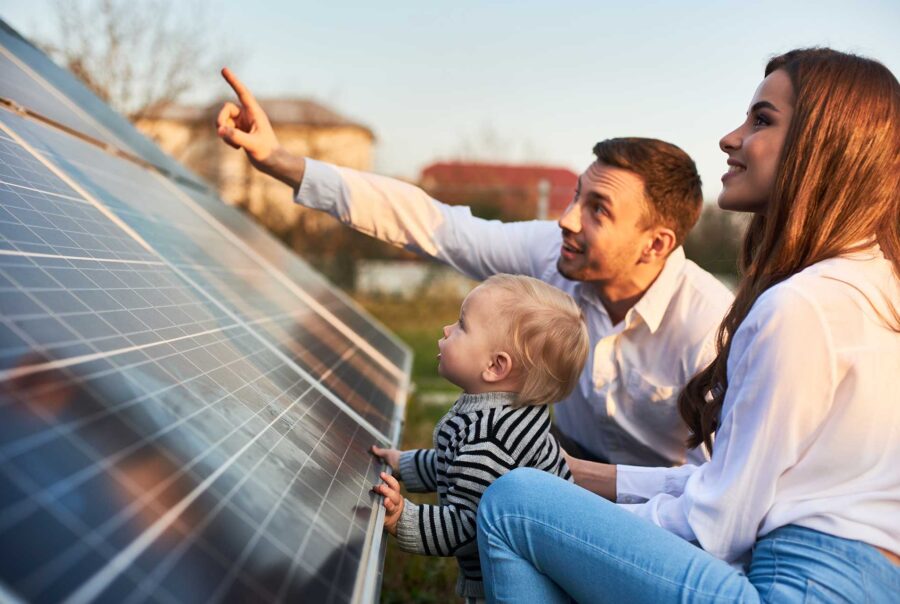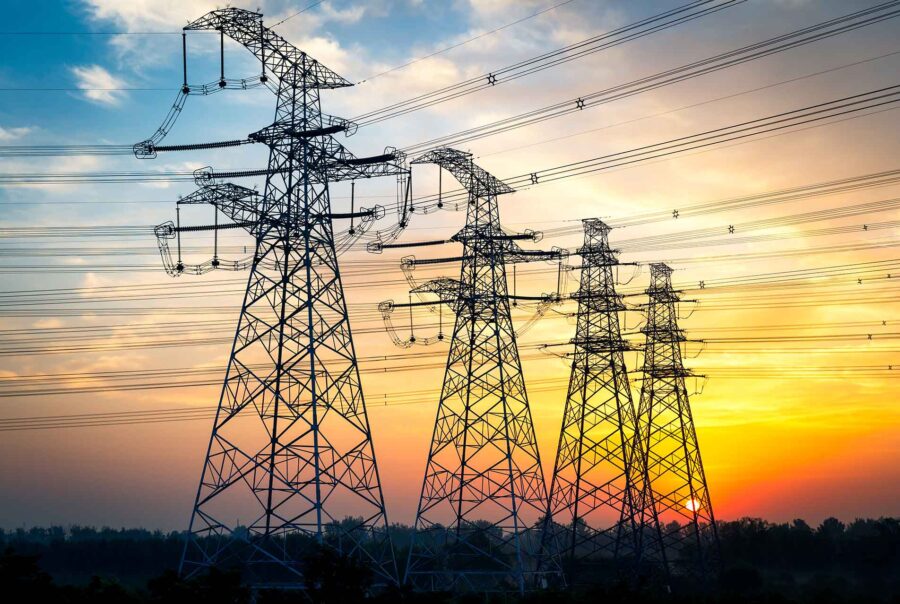Formación
Energy Democracy 101
What is Energy Democracy?
Energy democracy shifts decision-making power to communities and individuals so that those impacted make decisions about their energy system. Under energy democracy, working people, low-income communities, and communities of color and their allies take control of energy resources and decision-making from the corporate energy establishment to build local organizing power and invest in their communities.
A democratized energy system protects biological and cultural diversity by being
- Decentralized
- (Re)Distributed
- Diversified
Four Major Issues
The Energy Democracy Scorecard, developed by Emerald Cities Collaborative, is designed to help communities assess their current energy system and identify paths forward toward the goal of energy democracy. The scorecard measures four major issues that must be addressed for energy democracy to be possible:
- Social Justice: Equitable access to rights, opportunities, economic wealth, and social privilege, not pre-determined by race, ethnicity, class, or any other socially-determined oppression. An energy system employing social justice uses reparations and reinvestment in energy, environment, and climate.
- Regenerative Energy Systems: Reparations and reinvestment in energy justice, environmental and climate justice. Regenerative energy systems are renewable, resilient, sustainable, and collectively owned. These systems replenish/heal/fortify our natural and human environments and recognize them as interdependent.
- Moral Economy: A moral energy economy is renewable (source), de-commodified (use vs. exchange), sustainable (eco-focused), resilient (distributed), and shared (commons/ownership). A moral economy recognizes and respects the dignity of all workers, provides equal opportunity for everyone to support themselves and their families, and creates a level playing field for all.
- Co-governance: Addresses how decisions are made, who controls the energy planning and political process, and where ownership ultimately lies. Co-governance fosters an energy system that is inclusive and participatory, uses cooperative or shared economics, and is regenerative and sustainable.
How to Measure and Make Progress Toward Energy Democracy
For each of the four issues, communities can begin by mapping current/existing and future/desired energy systems, identifying barriers to progress, and taking steps to advance toward energy democracy. The following questions and topics may prompt these important conversations.
- Social justice: How can energy systems address environmental racism?
Health impacts of energy systems; siting of energy plants; land use; reparations for past harm; ownership and decision-making power; poverty/energy costs as a percent of household income. Do energy projects strengthen the community through jobs or economic benefits? - Regenerative energy systems: Are energy systems culturally appropriate?Honoring people and non-humans; commitment to invest in Black and brown communities. Is energy community-owned, locally generated, and decentralized, as well as clean and renewable?
- Moral economy: Are the economics of energy systems beneficial to workers and the community? Labor practices; workforce training; local hiring; worker training; energy generation is cooperatively owned and financed to benefit the community.
- Co-governance: Is the energy ownership structure democratized? Labor and community ownership; local procurement; priority given to projects that support Black, brown, and Indigenous communities.
Conclusion
The Energy Democracy Scorecard and framework are helpful in defining benchmarks from which to initiate transformational progress. The topics and questions outlined above can help focus community advocacy away from just identifying problems toward finding solutions, setting priorities, and taking action to create a new, just, resilient, affordable, and equitable energy reality.


